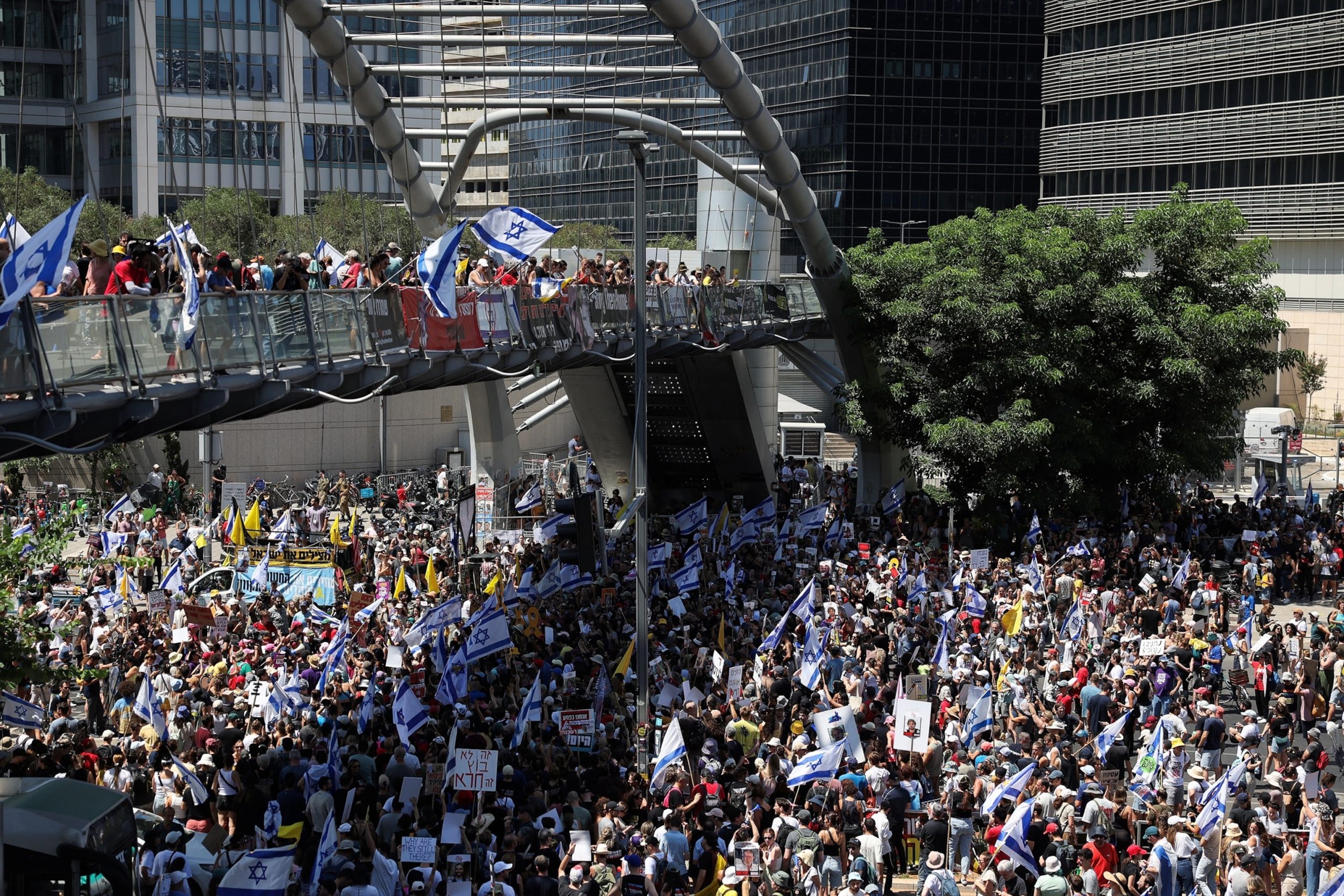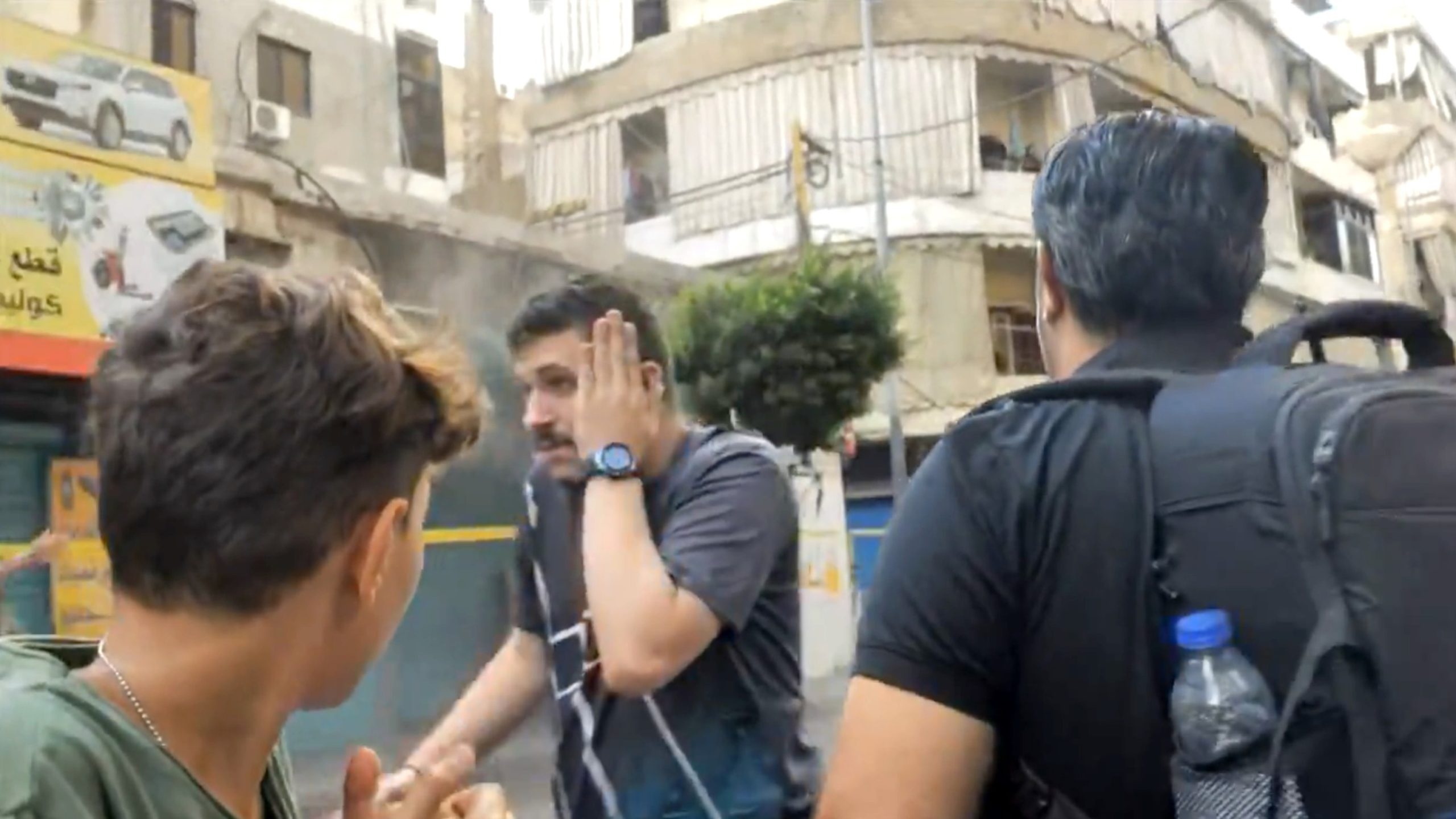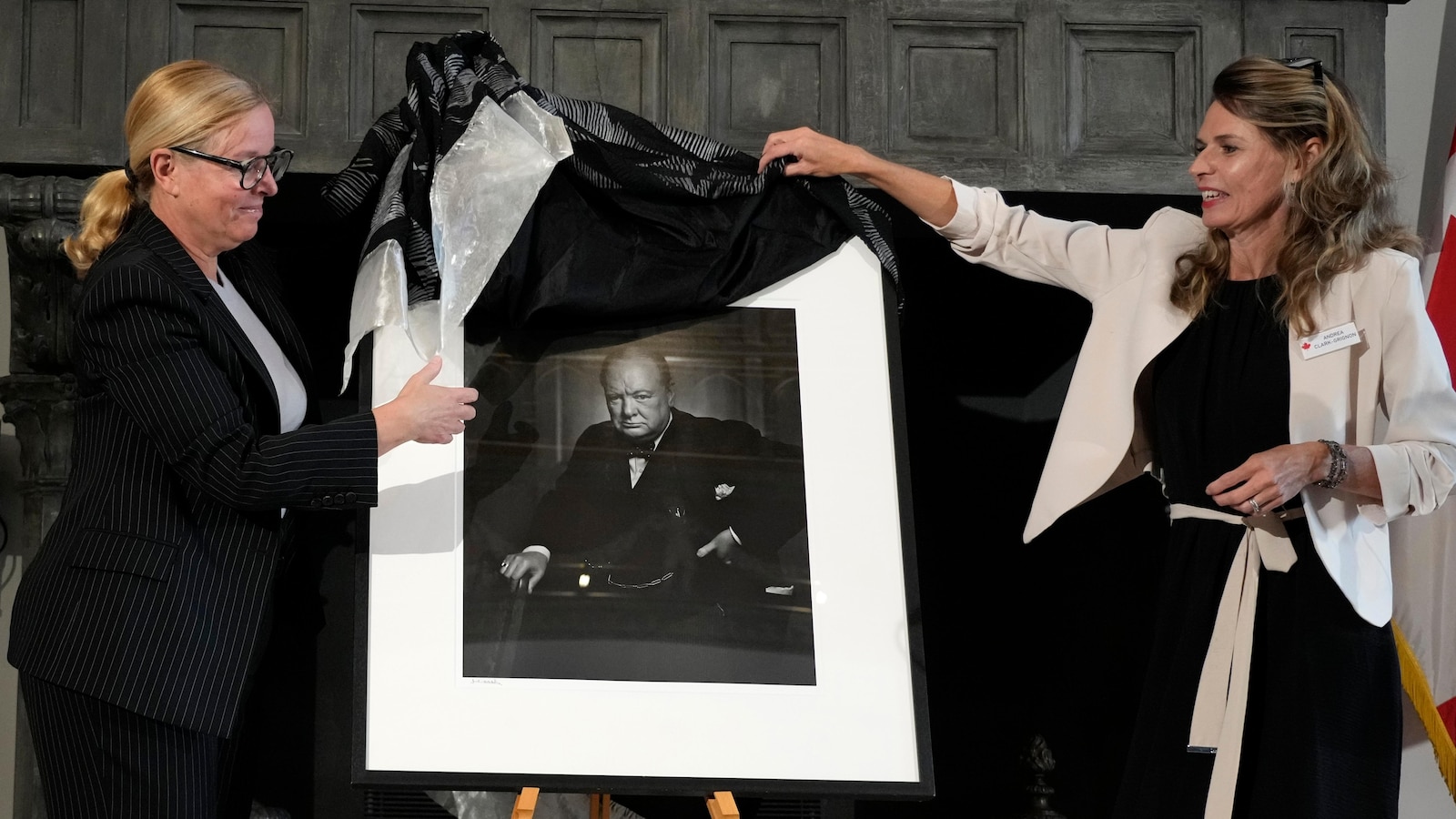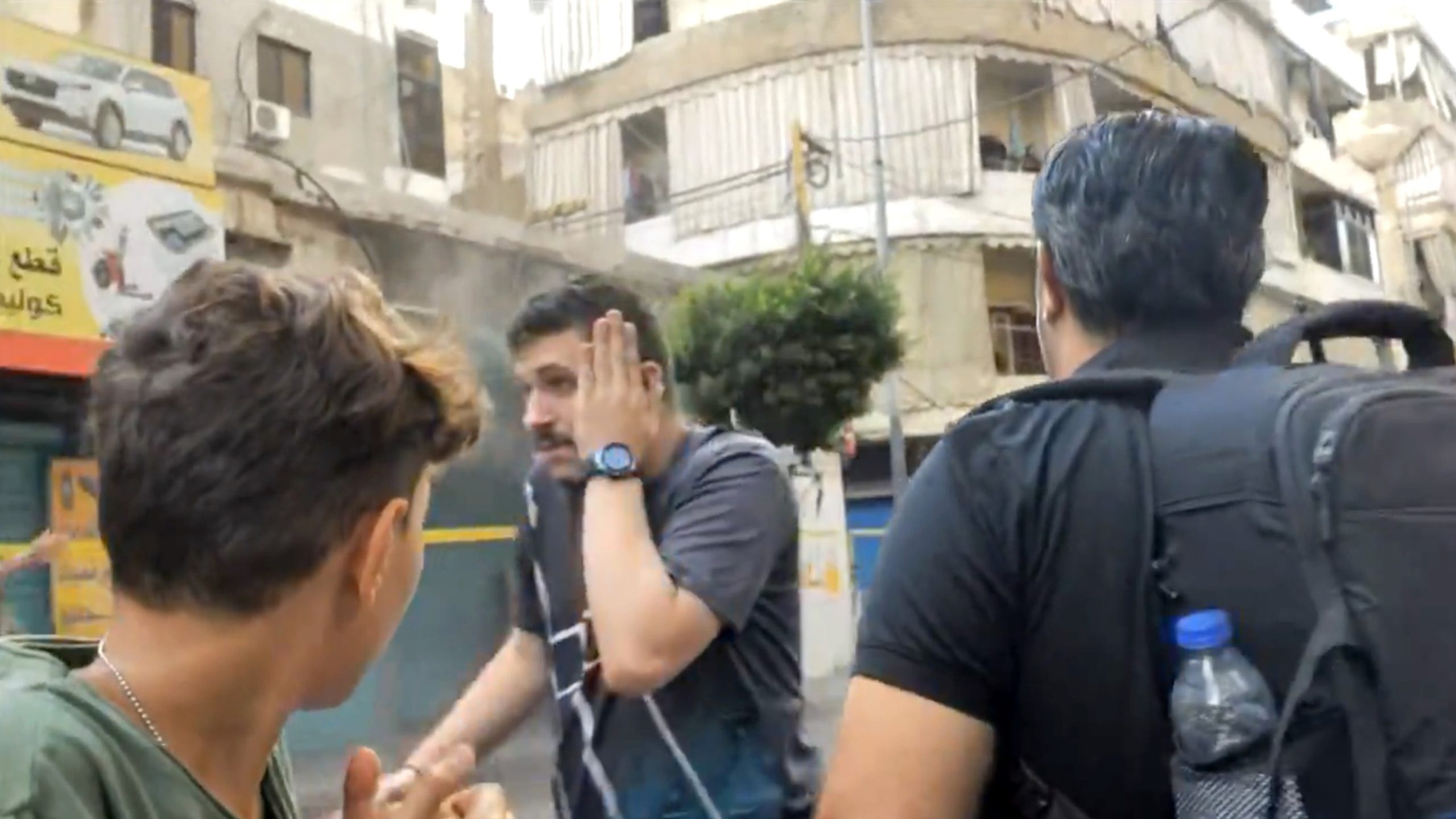LONDON — Anti-government demonstrators are gathering in the Israeli city of Tel Aviv for a second day of protests demanding that Prime Minister Benjamin Netanyahu conclude a cease-fire and hostage-release deal with Hamas.
Street protests are expected to resume across the country on Monday, coinciding with a general strike called by Israel’s largest trade union — Histadrut, or the General Organization of Workers in Israel, which has hundreds of thousands of members — which has caused disruptions to services in some areas of the country.
Airlines operating out of Ben-Gurion International Airport, for example, temporarily halted some flights on Monday morning due to the strike, according to the airport. The union said Sunday the strike was only expected to affect some departing flights. The general strike was expected to last until Monday at about 2:30 p.m. local time, according to union Chairman Arnon Bar-David.
The current wave of demonstrations was sparked by the recovery of the bodies of six hostages from a tunnel in the southern Gaza Strip on Saturday — among them American Israeli citizen Hersh Goldberg-Polin. The Israel Defense Forces said the captives were killed by militants “shortly” before their discovery.
The killings prompted fury in Israel, where some place blame for the deaths on Netanyahu’s months-long failure to reach a cease-fire deal with Hamas.
Opposition leader Yair Lapid said in a statement while expressing his support for the general strike: “They were alive. Netanyahu and the death cabinet decided not to save them. There are still live hostages there, a deal can still be made. Netanyahu is not doing it for political reasons.”
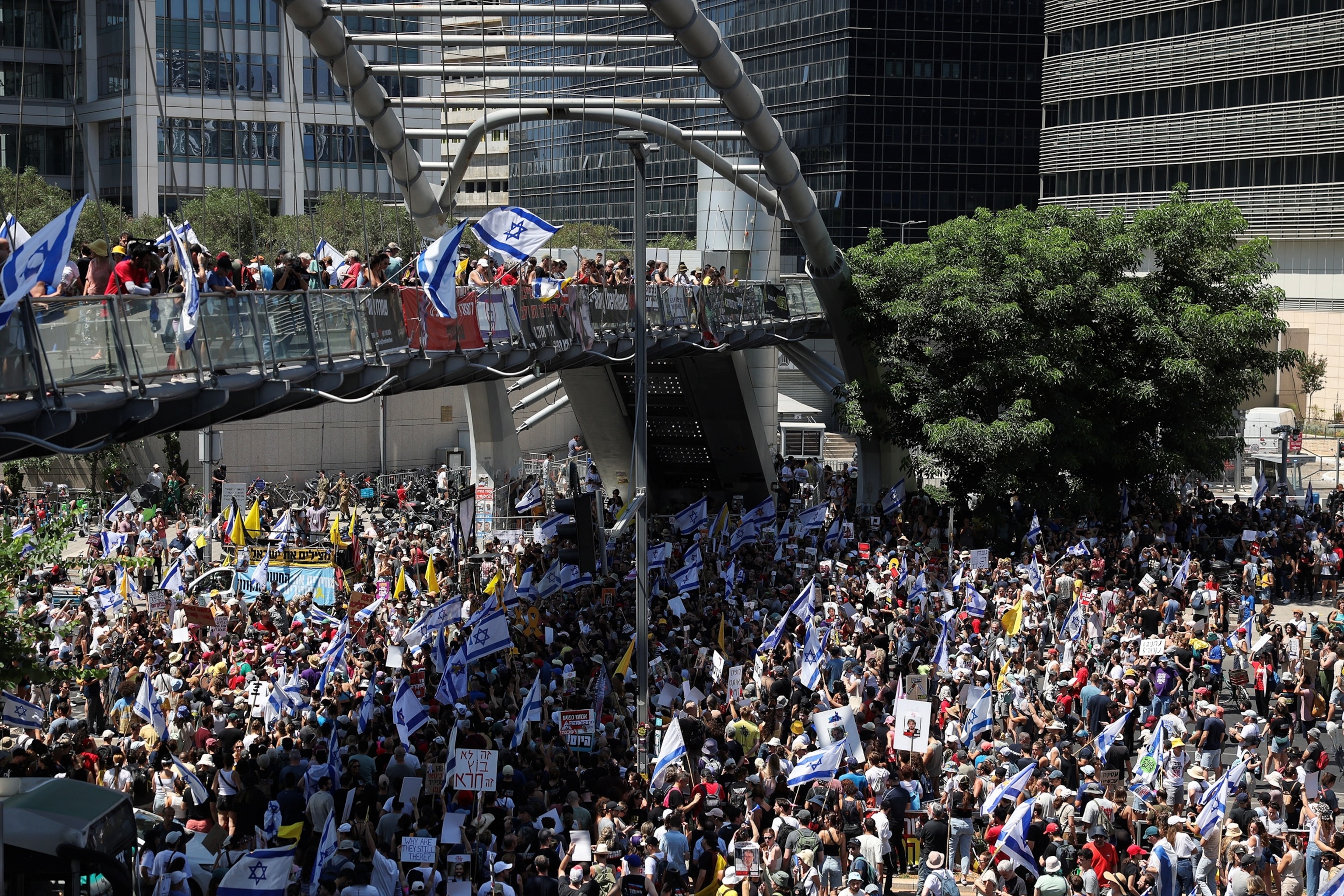
Protesters rally together against the government and to show support for the hostages who were kidnapped during the deadly Oct. 7 attack, in Tel Aviv, Israel, Sept. 2, 2024.
Florion Goga/Reuters
Defense Minister Yoav Gallant, meanwhile, posted on X linking the deaths of the six captives to Netanyahu’s reported decision last week to retain military control of the Philadelphi Corridor — the strip of land running along the Gaza-Egypt border — despite Hamas objections. Gallant called for the security cabinet to immediately reverse the decision in order to save the remaining hostages.
Public anger flared on Sunday night with hundreds of thousands of Israelis taking to the streets, with some engaging in clashes with police. Authorities said 29 people were arrested in Tel Aviv, as protesters set fire to barricades and launched fireworks.
Netanyahu blamed Hamas for the continued failure of cease-fire and hostage-release talks.
“Whoever murders hostages – does not want a deal,” the prime minister said in a statement released on Sunday. “Hamas is continuing to steadfastly refuse all proposals.”
“The government of Israel is committed, and I am personally committed, to continue striving toward a deal that will return all of our hostages and ensure our security and our existence,” he added.
Hamas accused Netanyahu of intentionally sabotaging negotiations by adding unacceptable new demands, which it said were “aimed at obstructing reaching an agreement to preserve his power.”
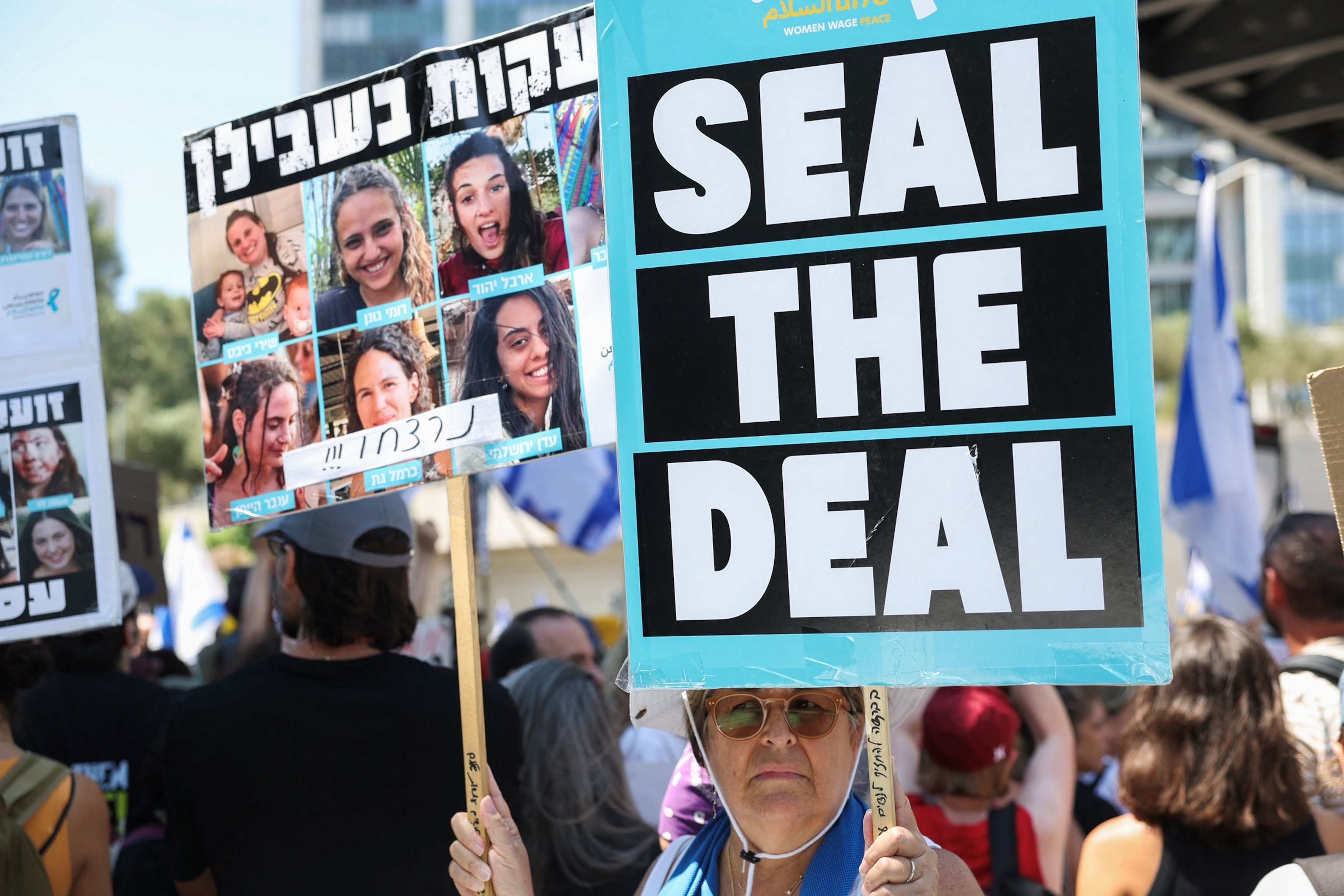
Protesters rally together against the government and to show support for the hostages who were kidnapped during the deadly Oct. 7 attack, in Tel Aviv, Israel, Sept. 2, 2024.
Florion Goga/Reuters
Some of Netanyahu’s far-right coalition partners have pushed back on the protesters’ demands for a deal.
Finance Minister Bezalel Smotrich, for example, noted in a post on X that he was seeking legal action to break up the general strike. Its organizers, he said, “will not be allowed to turn the country upside down.”
Strikers, he added, “serve the interests of [Hamas leader Yahya] Sinwar and Hamas.”
ABC News’ Joe Simonetti contributed to this report.
Protesters in Tel Aviv have taken to the streets for the second consecutive day, demanding a cease-fire in the ongoing conflict between Israel and Hamas. The demonstrations come as the violence in the region shows no signs of abating, with both sides continuing to exchange rocket fire and airstrikes.
The protesters, many of whom are young Israelis, are calling for an end to the bloodshed and a return to peace negotiations. They are also demanding that the Israeli government take steps to address the root causes of the conflict, including the ongoing occupation of Palestinian territories and the blockade of Gaza.
The demonstrations have been largely peaceful, with protesters chanting slogans and waving signs calling for peace. However, there have been reports of clashes between protesters and police, with some arrests being made.
The protests come at a time of heightened tensions in the region, with the United Nations warning of a humanitarian crisis in Gaza due to the ongoing violence. The Israeli military has also warned that it is prepared to escalate its operations in Gaza if necessary.
The international community has called for an immediate cease-fire and a return to negotiations to end the conflict. The United States, the European Union, and other countries have all expressed concern over the escalating violence and have called on both sides to show restraint.
Despite the calls for peace, it remains unclear if a cease-fire will be reached anytime soon. Both Israel and Hamas have shown little willingness to back down, with both sides vowing to continue fighting until their demands are met.
As the protests in Tel Aviv continue, it is clear that there is a growing desire among Israelis for an end to the violence and a return to peace. Whether their voices will be heard remains to be seen, but one thing is certain: the people of Tel Aviv are determined to make their voices heard and demand an end to the conflict.
